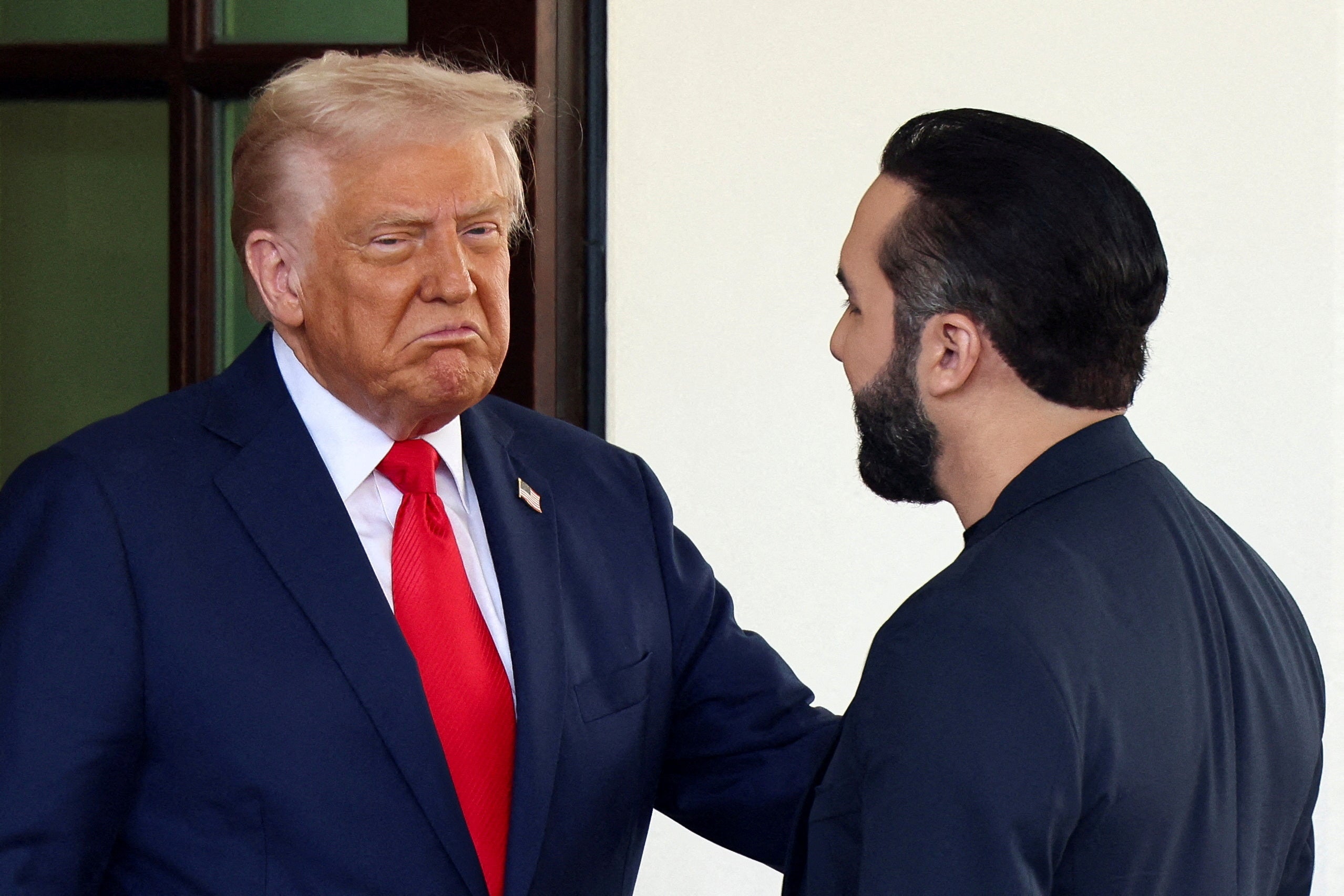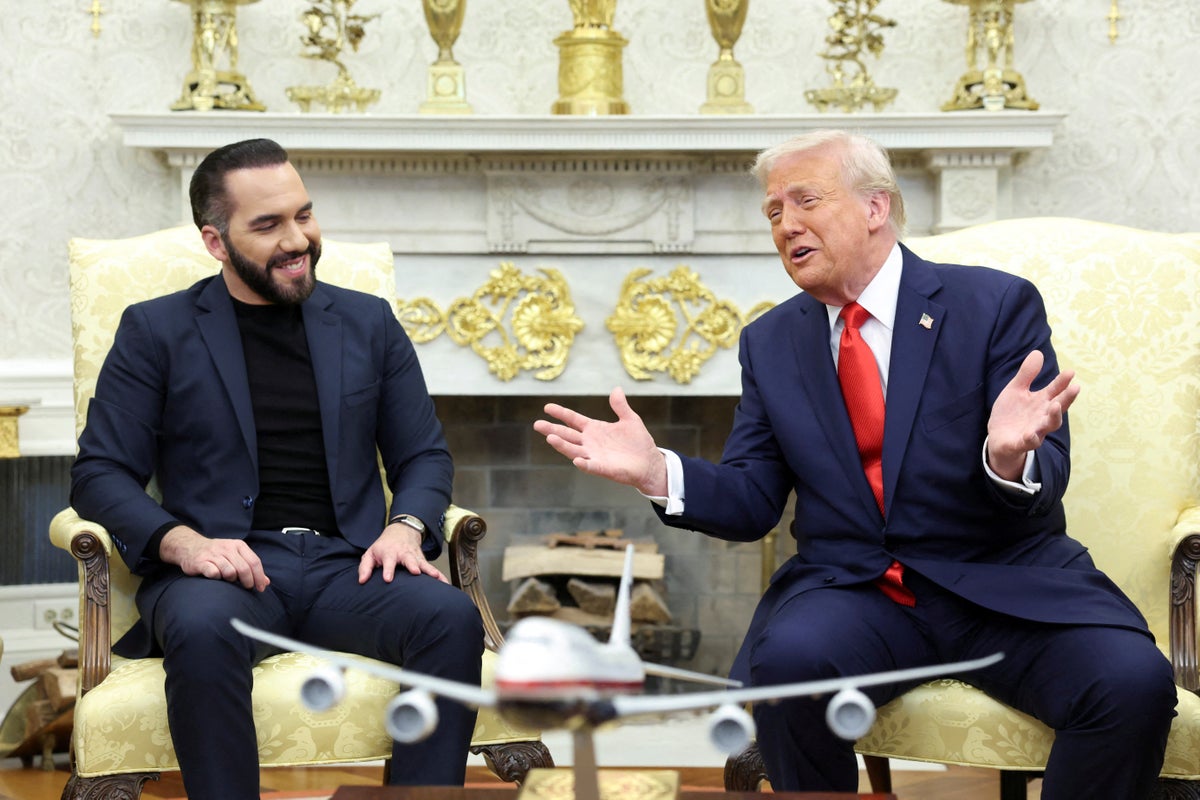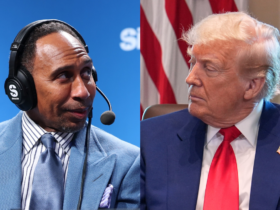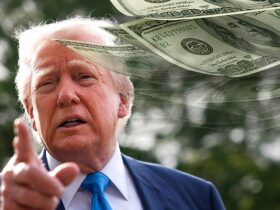Your support helps us to tell the story
From reproductive rights to climate change to Big Tech, The Independent is on the ground when the story is developing. Whether it’s investigating the financials of Elon Musk’s pro-Trump PAC or producing our latest documentary, ‘The A Word’, which shines a light on the American women fighting for reproductive rights, we know how important it is to parse out the facts from the messaging.
At such a critical moment in US history, we need reporters on the ground. Your donation allows us to keep sending journalists to speak to both sides of the story.
The Independent is trusted by Americans across the entire political spectrum. And unlike many other quality news outlets, we choose not to lock Americans out of our reporting and analysis with paywalls. We believe quality journalism should be available to everyone, paid for by those who can afford it.
Your support makes all the difference.
El Salvador President Nayib Bukele asked the Trump administration for evidence that the 238 Venezuelans deported to his country’s maximum-security prison last month were actually part of a notorious gang, according to a report.
While Bukele and President Donald Trump appeared to be on the same page at last month’s meeting in the Oval Office, Bukele privately “expressed concern” about who the Trump administration sent to El Salvador’s Terrorism Confinement Center, known as CECOT, according to The New York Times.
Bukele’s concern sparked a “scramble” among U.S. officials to get him evidence that the migrants belonged to the transnational Tren de Aragua gang, The Times reported.
His request for evidence reportedly materialized after the deportation flights from the U.S. had already taken off for his country, according to The Times, which reports new details about the negotiations between Bukele and Trump.
Few of the deportees had documented public links to Tren de Aragua and U.S. officials created a scorecard system for each alleged gang member to present to Bukele and his team, which included criteria such as their tattoos as evidence.
Additionally in the chaos, eight women were among the migrants sent to the all-male facility before they were swiftly sent back to the U.S.
In return for holding up his part of the deal, Bukele demanded the U.S. release the El Salvadoran MS-13 leaders in its custody so they could be interrogated in their home country. Bukele’s request “worried” some law enforcement officials, The Times reported, but the administration agreed and sent around a dozen senior members of the gang back to El Salvador.
The new details come as the Supreme Court is due to weigh in on the Trump administration’s application of the Alien Enemies Act, something which was previously only invoked by presidents during wartime.

“The president has the right to remove foreign terrorists from our homeland, and we are absolutely confident that truth will ultimately prevail in court,” the White House press secretary, Karoline Leavitt, said in a statement to the newspaper. “In the meantime, the administration continues to comply with all court orders.”
The Trump administration invoked the Alien Enemies Act in March to justify the deportation of alleged Venezuelan gang members without a hearing.
But some State Department officials were “dismayed” at what had transpired, given American intelligence agencies recently assessed that the Tren de Aragua gang was not actually controlled by the Venezuelan government, The Times noted.
The administration has admitted in court filings that “many” of the people sent to a notorious prison in El Salvador under the Alien Enemies Act did not have criminal records, and attorneys and family members say their clients and relatives — some of whom were in the country with legal permission and have upcoming court hearings on their asylum claims — have nothing to do with Tren de Aragua.
















Leave a Reply